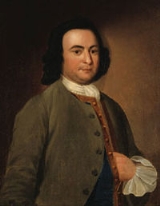
The Second Amendment (Amendment II) to the United States Constitution
is the part of the United States Bill of Rights
that protects the right of the people to keep and bear arms. It was adopted on December 15, 1791, along with the rest of the Bill of Rights.
In 2008 and 2010, the Supreme Court
issued two Second Amendment decisions. In District of Columbia v. Heller
(2008), the Court ruled that the Second Amendment protects an individual's right to possess a firearm, unconnected to service in a militia and to use that arm for traditionally lawful purposes, such as self-defense within the home.
No freeman shall ever be debarred the use of arms.![]()
The Constitution of most of our states (and of the United States) assert that all power is inherent in the people; that they may exercise it by themselves;... that it is their right and duty to be at all times armed and that they are entitled to freedom of person, freedom of religion, freedom of property, and freedom of press.![]()
Here every private person is authorized to arm himself, and on the strength of this authority, I do not deny the inhabitants had a right to arm themselves at that time, for their defense, not for offence.![]()
To see that the people be continually trained up in the exercise of arms, and the militia lodged only in the people's hands.![]()
[W]hen the resolution of enslaving America was formed in Great Britain, the British Parliament was advised by an artful man, who was governor of Pennsylvania, to disarm the people; that it was the best and most effectual way to enslave them; but that they should not do it openly, but weaken them, and let them sink gradually. . . .![]()
I ask, who are the militia? They consist now of the whole people, except a few public officers. But I cannot say who will be the militia of the future day. If that paper on the table gets no alteration, the militia of the future day may not consist of all classes, high and low, and rich and poor. . . .![]()
That the People have a right to keep and bear Arms; that a well regulated Militia, composed of the Body of the People, trained to arms, is the proper, natural, and safe Defence of a free state.![]()

